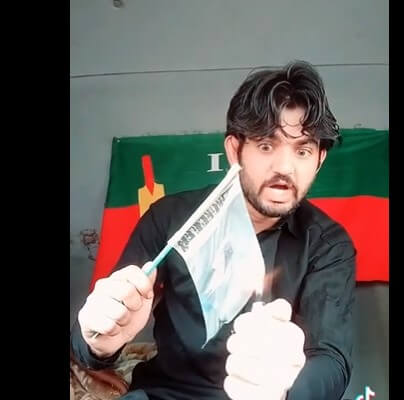
The Precarious Polarization
By Asif Iqbal
I remember back in my university days I was taking a course on Sociology. Therein, in one of the readings I came across this interesting line: Social reality is a variable phenomenon. Intrigued, I asked my teacher about its meaning. She remained elusive and advised not to go into theoretical details. But the sentence stayed on my mind. I eventually learnt that all social phenomenon in society are given different meanings by individuals which are unique. Some meanings are common to a group while other groups give other meaning. This means, that reality is given different meaning while no one meaning is absolute. It implies that difference of opinion on any matter is natural in human societies. But what happens when this difference of opinion becomes so extreme as to create polarization and divisions?
An aspect of current political crisis least talked about is polarization. Whether you look at talk shows, social media, work places or even at home, go through through WhatsApp, there is this peculiar polarization where everyone not only holds their views but rather considers others views as altogether wrong. Technology has hastened this polarization. This is dangerous as these debates often turn aggressive and have not only the potential to damage personal and professional relations but also turn violent. More precariously, it adds another division in a society already divided strongly along class, gender, nation and ethnicity.
Interestingly, diversity of views is something not encouraged or recognized in our society. Our education system to begin with, teaches us myopic views, homogenous ideas of nationhood and a narrow conception of history. We are taught absolute truths in curriculum which could seldom be questioned. So the roots are established where difference of opinion and divergence is seen as wrong. Then we also have an absence of student unions, hence the students never learn to advance and defend their rights through arguments. Instead, we see the rule of ‘might is right’. So all this is internalized, and develops a sort of herd mentality as each group cherishes and advances its own truth while condemning others. When political classes for their own objectives, entice such a population, it is no surprise that we see extreme polarization.
However, the kind of polarization now seen, is quite extra ordinary. Look at how certain extreme partisan positions are manifested in people burning national flags or passports. Not to mention how noble profession’s like education and journalism are being affected. Citizens on twitter reported teachers in schools taking partisan positions while still other journalists, whose profession demands objectivity and neutrality, take partisan positions passionately and proudly. Then there are still other expats, who are taking partisan positions to an extent that they are protesting and promising to not send any more remittances. Whole TV channels and media groups have also joined the partisan grouping. There are many other examples. No walk of life, seems immune from this extreme polarization.
The above state of affairs does not bode well for a society already crumbling from extremism and propensity to violence. There has been this recent incident in a hotel in Islamabad where some lawmakers were involved in a scuffle. Journalists were also attacked at a political rally in Peshawar. Confrontation between political workers also took place in London. More dangerously, both sides, use religious arguments to for their positions on sensitive issues like blasphemy, in support of their leadership. There are also insinuations to violence by political players. Then the much clichéd traitor slogan and title is back in vogue. All this, may easily translate into further uncontrollable and unprecedented episodes of violence and loss of precious human lives.
Is there some way this mayhem and chaos can be controlled? Unfortunately, there are no easy solutions since democracies are sometimes messy and chaotic. If the state tries to weigh in too heavily, there are concerns for rights. And if the state looks the other way, then situation could easily get out of control. So the most obvious but difficult solution seems three folds.
First is enforcing rule of law without discrimination on violations. This means that when legal boundaries are crossed through partisan action, state apparatus must act immediately. There should be no favorites, when supporters of any party violate law, they must be acted against. Second involves political leadership, they must counsel sanity, lower political temperature, desist from extreme attacks and propagating divisions while advising people to act democratically. Without their active involvement and support, if even if law takes its course, it would be used by them to reinforce divisions. Third, there must be a case for civic education becoming part of our curriculum, students must be taught about democratic values like tolerance, recognizing others perspectives and agreeing to disagree. This must include a detailed study of the importance of constitution along with an emphasis on people’s right so that there is awareness for rights. This should be combined with an immediate lifting of ban on student unions.
The world of Psychology also offers some interesting insights into how people pick up information that reinforces their existing views (partisan positions) while avoiding contradictory information and opposing. This is human nature and people mentally dissect information they are exposed to and select favorable evidence while avoiding the unfavorable. This is known as Selective Exposure theory and Confirmation Bias. Next time, you take up some partisan position by using some information from media or news, do try to check others point of view to have a balanced, nuanced and democratic understanding.
Human societies are made up of diverse groups. Pakistan itself is an ethnically fragmented society with different political parties making up the political spectrum. It becomes doubly and immensely important to avoid and defuse the existing state of polarization by listening and understanding others perspective, respecting the differences through tolerance, thus realizing the potential of peaceful existence essential for national unity, harmony and development.

The writer is a human resource professional, a student of development studies and interested in political and social issues. He tweets at @Asif_Iqbal_86



